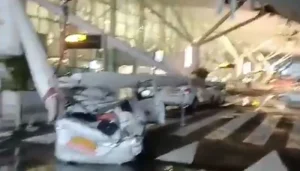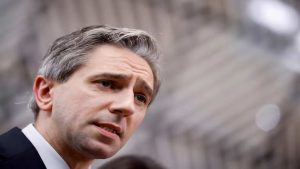Are NATO countries divided over sending their own soldiers in war against Russia?
As the confrontation between Russia and Ukraine continues, several NATO countries are advocating for a more daring strategy, recommending that allies consider sending their own troops to Ukraine.
While NATO allies have supplied significant assistance to Ukraine since Russia’s full-fledged invasion in February 2022, including armament and soldier training, some say that greater direct intervention is required to deter Russian aggression.

Estonia’s Prime Minister, Kaja Kallas, has asked NATO nations to send troops to Ukraine to train soldiers, despite fears about intensifying the confrontation with Russia.
Speaking to the Financial Times, Kallas stated that the possibility of a larger battle should not dissuade NATO countries from adopting more proactive steps.
“There are countries that are already training soldiers on the ground,” Kallas added, emphasizing that they do so at their own peril. She also stated that if NATO soldiers were assaulted in Ukraine, Article 5, NATO’s collective defense clause, would not be immediately invoked.
“If you send people to help Ukrainians, you are aware that the country is at war and that you are entering a dangerous area. “So you take the risk,” she explained.
French President Emmanuel Macron has also recommended that Europe consider deploying soldiers to help Ukraine if Russia breaches its defense lines. Macron has stated that this measure might be considered if asked by Ukraine and in dire circumstances if Russia posed a substantial threat.
We have obviously been overly cautious in establishing the limits of our action to someone who no longer has any and is the aggressor,” Macron said. He cautioned that a Russian victory in Ukraine would jeopardize European security, repeating Estonia’s concern that Russia could strike other European countries if left unchecked.
Other NATO members had mixed reactions.
While France and Estonia advocate for a more assertive approach, other NATO countries have been cautious. At the moment, neither the United Kingdom nor the United States intend to send soldiers to Ukraine. However, Poland’s foreign minister has stated that the presence of NATO military in Ukraine “is not unthinkable,” praising Macron’s openness to the notion.
Lithuanian Prime Minister Ingrida Šimonytė announced that her parliament has authorized deploying troops to Ukraine for training, despite the fact that Ukraine has not requested it. She downplayed the prospect of Russian reprisal, stating that persistent concern over Russia’s response should not deter support for Ukraine.
The broader implications
The discussion about sending NATO troops to Ukraine highlights the continued tensions and uncertainties surrounding the crisis. Estonia and France’s calls for more action show a sense of urgency and the idea that stronger measures are required to avoid further Russian advances.
Meanwhile, some NATO members are hesitant of escalating the situation and risking a direct confrontation with Russia.
This exchange highlights a broader pattern seen throughout the war: early hesitation to take dramatic steps in support of Ukraine, followed by gradual policy revisions as the situation evolves. The position and engagement of NATO in the Ukrainian crisis is likely to be debated and reassessed in the coming months.
Meanwhile, NATO countries continue to support Ukraine with weaponry, training, and humanitarian aid, as they navigate the difficult politics of supporting a war-torn country without sparking a broader conflict.










